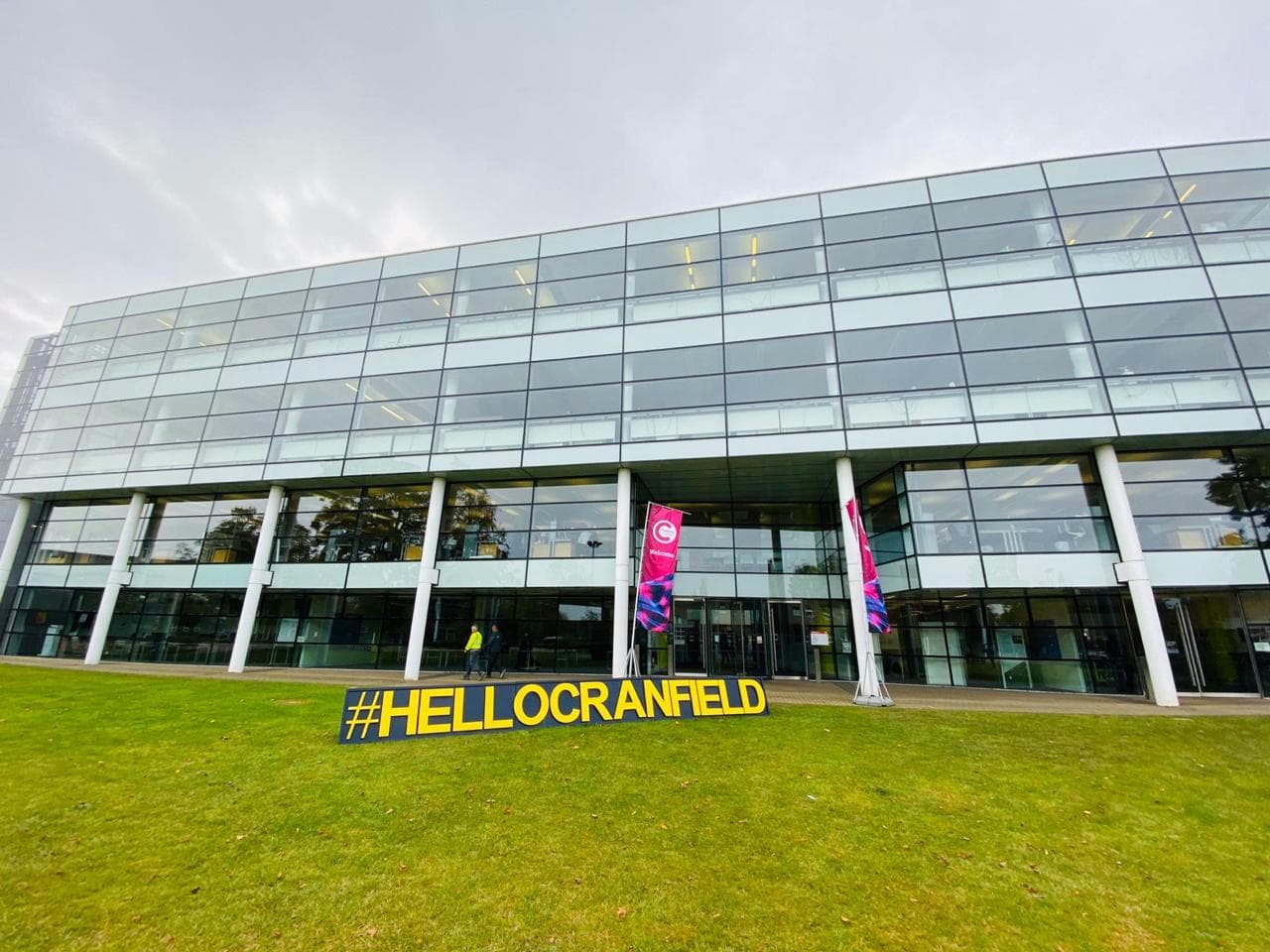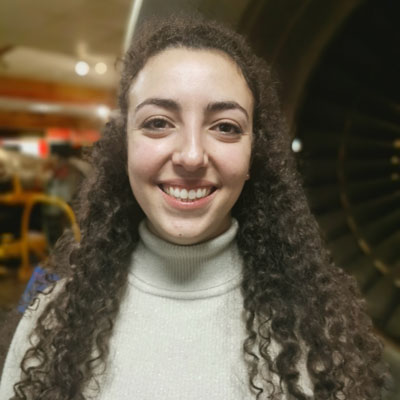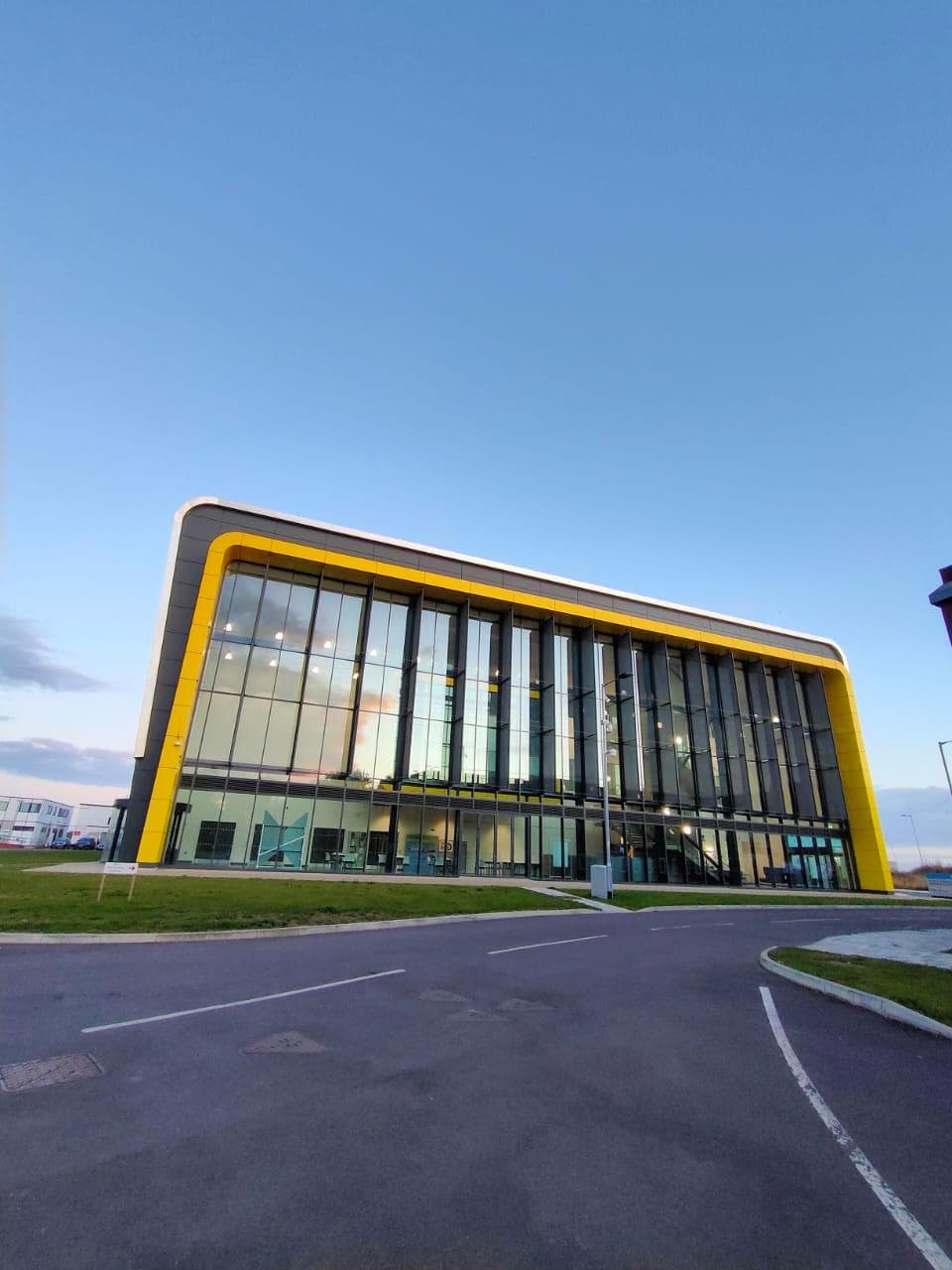I look forward to the next four months…
03/02/2020

I am Mathilde, a French student who decided to complete a double degree at Cranfield University. I attended classes of Energy process and Energy transition in my French engineering school, the Ecole des Mines de Saint-Etienne and was eager to dig deeper in mechanics such as structural mechanics, optimization of machinery while continuing to learn more fundamental and applied physics. I knew Cranfield University thanks to the agreement with my school and, so started looking into their courses and soon found exactly the Master’s course I was looking for – one which linked energy and mechanical engineering. I applied and received an offer to study the MSc in Advanced Mechanical Engineering soon after.

I applied for on-campus accommodation but unfortunately did not manage to get a room in time. Instead, I got a room in a very spacious shared house in Cranfield Village which after all satisfies me now since it is near the University and many people live there too.
After four out of my eight modules, everything is going great so far. At the beginning of the year, we were greeted with diverse gathering events such as a welcoming ceremony where the director gave a speech in front of all students. There was also a barbecue with all Energy students, a quiz with SWEE students to know the campus better, and even parties hosted by the Cranfield Student Association. This was followed by induction week where we got to know each other, our course leaders and familiarise with the University and how it works. Then the real fun began. The structure of the first two months was the following: a one week of lectures and one week of self-study. Usually, this time is established to complete an assignment which permits us to deeply assimilate the previous week. Courses are rich due to their intensity but also because there are some external lecturers which allow to better understand their field and work. I also had two exams before going to the Christmas holidays.

I am currently into the Computational Fluid Dynamic for renewable energy module which is part of the applied modules. It means that it is expanded to two weeks of lectures and practice at the same time. In addition, my colleagues, my tutor and I are also preparing the subject for the group project which we have chosen to be linked with industry. I do not know precisely in which field of energy I want to work later. However, thanks to the courses, the lectures and the reflection that self-study time gives you and seeking of group project subject, I have started to acquire a better understanding of what could be my individual thesis project and my future job.

I am very happy with my four months spent so far because, in addition to learning about different cultures, varying and complementary ways of learning, this course has given me a real deepening of my scientific knowledge applied in the field of energy. Moreover, professors presenting this formation are real experts in their field. They provide high-level training and advanced research on advanced materials, structures and implementation processes for energy and power.
I look forward to the next four months.
Categories & Tags:
Leave a comment on this post:
You might also like…
Company codes – CUSIP, SEDOL, ISIN…. What do they mean and how can you use them in our Library resources?
As you use our many finance resources, you will probably notice unique company identifiers which may be codes or symbols. It is worth spending some time getting to know what these are and which resources ...
Supporting careers in defence through specialist education
As a materials engineer by background, I have always been drawn to fields where technical expertise directly shapes real‑world outcomes. Few sectors exemplify this better than defence. Engineering careers in defence sit at the ...
What being a woman in STEM means to me
STEM is both a way of thinking and a practical toolkit. It sharpens reasoning and equips us to turn ideas into solutions with measurable impact. For me, STEM has never been only about acquiring ...
A woman’s experience in environmental science within defence
When I stepped into the gates of the Defence Academy it was the 30th September 2019. I did not know at the time that this would be the beginning of a long journey as ...
Working on your group project? We can help!
When undertaking a group project, typically you'll need to investigate a topic, decide on a methodology for your investigation, gather and collate information and data, share your findings with each other, and then formally report ...
From passion to purpose: My journey at the Pinnacle of Aviation
By: Sultana Yassin Abdi MSc Air Transport Management, Current Student Born and raised in the vibrant landscape of the UAE, with roots stretching back to Somalia, my life has always been ...






